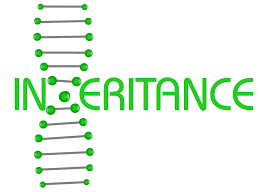Latest News
The dispute related to the inheritance of shares is to be decided by the Civil Courts only.

Supreme Court to state that the dispute related to the inheritance of shares is to be decided by the Civil Courts only.
In the case of Aruna Oswal v/s Pankaj Oswal, CIVIL APPEAL NO.9340 OF 2019, in its judgment Supreme Court stated the disputes of Inheritance of Share cannot be decided under the Companies Act 2013.
The suit cannot be filed u/s 241 and u/s 242 of the Companies Act 2013 for the Inheritance of Shares.
Section 241 of the Companies Act, 2013 defines, Application to Tribunal for relief in cases of oppression, and section 242 of the Act states the NCLT Tribunal has the power to pass an order for prevention of oppression on the receipt of the application u/s 241.
Facts of the case:
The given case, Aruna Oswal v/s Pankaj Oswal,
The case is an outcome of family tussle which in between the wife and the son of Lt. Abhay Kumar Oswal who passed away on 29th March 2016 in Russia. Mr. Abhay Kumar Oswal owned 5,35,3,960 shares in M/S Oswal Agro Mills Ltd. which a listed company.
On 18th June 2015, Mr. Abhay had filed a nomination u/s 72 of the Companies Act in the favour of his wife Mrs. Aruna Oswal. The nomination was duly tested by the witnesses in the prescribed manner. On 16th April 2016, the name of Aruna Oswal was registered as a holder of the shares held by her deceased husband.
However, on 3rd February 2017, the respondent to the case Pankaj Oswal, son of the deceased, filed a partition suit claiming 1/4th estate of his father. He also claimed 1/4th of the shareholding of his father in Oswal Agro Mills and M/s Oswal Greentech Ltd. A prayer was made for an interim injunction in the civil suit.
The High Court passed an order on 8th February 2017, directing the parties to maintain Status Quo in a matter of shares and other immovable property and declared that shares registered stood in the ownership of Mrs. Aruna Oswal.
After the demise of Mr. Abhay Oswal, his son Pankaj Oswal with his wife entered the property of corporate offices of Oswal Agro Mills and M/s Oswal Greentech Ltd. against which an FIR was lodged, at Barakhamba Road Police Station, New Delhi by the Appellant.
As a retort to it, the Respondent filed a complaint against the Appellant and M/S Oswal Agro Mills Ltd. and M/s Oswal Greentech Ltd. alleging for illegal transmission of shares. However, the complaint and application filed by the Respondent were dismissed.
Later, a Company Petition was filed No. 56/CHD/PB/2018, by Pankaj Oswal u/s 241 and 242 of the Companies Act 2013, alleging for oppression and mismanagement in the affairs of M/S Oswal Agro Mills Ltd. He also claimed to maintain the eligibility of the petition and claimed an entitlement and legitimate expectation to 9.97% shareholding in M/S Oswal Agro Mills Ltd.
An application was filed by Aruna Oswal challenging maintainability of the petition filed by Pankaj Oswal stating that the dispute with Inheritance of the diseased was a civil suit and not a company suit as cited in the case of Sangramsingh P. Gaekwad and Ors. V/s Shantadevi Gaekwad and Ors. However, NCLT, Delhi (NCLAT) held the complaint filed by Pankaj Oswal as sustainable and dismissed the claim of Aruna Oswal.
Aggrieved by the decision of NCLT Aruna Oswal filed an appeal before the Supreme Court.
Issues of the case:
During the pendency of the Appeal following issues were raised for the Supreme Court,
- Whether the petition filed by the Respondent before NCLT Court was maintainable or not?
- Whether the matter of dispute was falling under the provisions of the Civil Suit or the Company Petition or not?
- Whether the Respondent’s claim was fair or not?
Judgment:
The Bench consisting of J Arun Mishra and J Navin Sinha delivering the judgment on 6th July 2020, stated,
In the question of law, the Title and Inheritance falls under the adjudication of Civil Law.
The Respondent should have waited on the judgment on the Title and Inheritance of shares and made use of civil remedy than filing a coinciding petition under Company Law.
The matters related to Inheritance and Title are adjudicated by the Civil Courts, therefore the petition filed before NCLT Delhi, by the respondent must be withdrawn and the decision of the Civil Court will be final and conclusive and binding on parties.
Document:



































































































